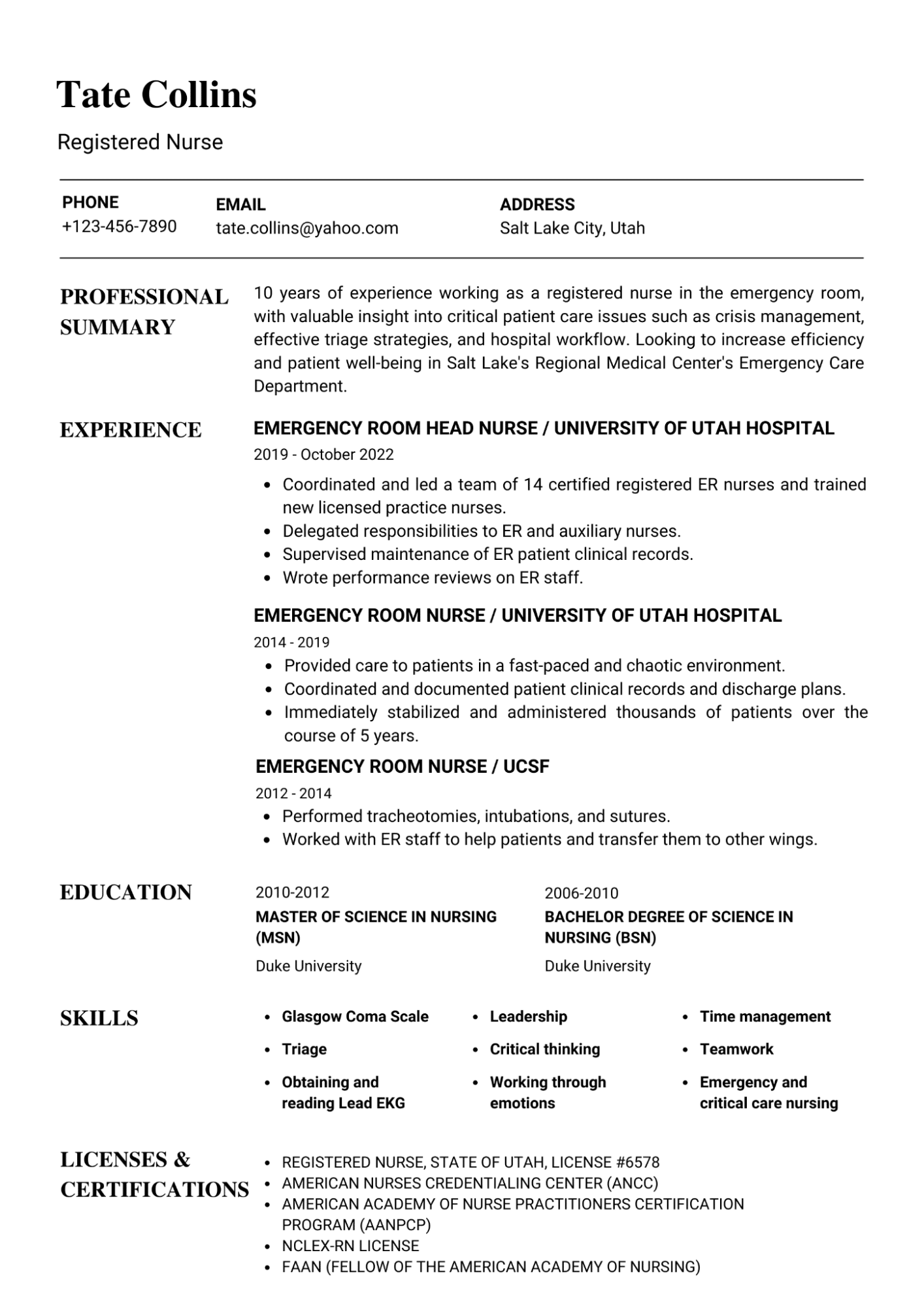In the competitive world of healthcare, having a standout nursing resume can be the key to unlocking your ideal career. A well-written nursing CV is not just a document listing past jobs and education; it is your personal marketing tool that can highlight your unique qualifications, experience, and passion for patient care. Whether you are a recent graduate just starting your journey, an experienced nurse seeking new challenges, or a nursing assistant looking to advance your career, crafting a polished resume is essential to make a memorable impression on potential employers.
Healthcare facilities are flooded with resumes from candidates, all competing for the same positions. Consequently, your resume must not only showcase your technical skills and expertise but also your ability to provide compassionate care and work effectively within a team. In this article, we will guide you through the essential elements of a compelling nursing resume, offer practical writing tips for every stage of your nursing career, and provide examples that will inspire you to create a document that truly reflects who you are as a healthcare professional.
Why a Good Nursing Resume Matters
A well-crafted nursing resume is your first point of contact with potential employers, making it an essential tool for your career in healthcare. It should be succinct and straightforward, focusing on your most relevant experience. This initial impression can determine whether a recruiter sets your resume aside or invites you for an interview. By ensuring that your resume paints a comprehensive picture of your skills and passion for patient care, you increase your chances of standing out in a competitive job market.
In the nursing profession, your resume serves as more than just a document detailing your past employment and education. It acts as a marketing tool that highlights your clinical competencies, empathetic nature, and ability to perform well under pressure. By tailoring your resume to reflect your unique qualifications, you can effectively showcase the attributes that align with the demanding and patient-centric nature of nursing roles. This customization is vital, as healthcare facilities are looking for candidates who can deliver exceptional care while working collaboratively in team-driven environments.
Moreover, a strong resume has the power to not only capture the attention of hiring managers but also navigate through applicant tracking systems. With hospitals receiving hundreds of resumes for a single job, your resume becomes a critical opportunity to make a lasting impression. By presenting your nursing expertise, commitment to patient care, and ability to collaborate effectively, you position yourself as the ideal candidate for positions in healthcare.
Nursing Resume Essentials
A nursing resume should be structured with clarity and purpose, as it plays a vital role in your job application process. Start by ensuring that each key element of your resume serves a specific function, showcasing your unique qualifications. By doing so, you enhance your chances of standing out not just as a skilled candidate, but also as someone who truly understands the demands of the healthcare environment.
Begin with your contact information, which needs to be accurate and professional. Include your full name, a reliable email address, and a phone number where you can easily be reached. If applicable, adding a link to your LinkedIn profile can provide employers with additional insights into your professional background. Remember to avoid unprofessional email addresses; opt for something simple and straightforward that reflects your identity.
Following your contact details, prioritize the professional summary, which is your initial opportunity to grab the attention of recruiters. This brief statement should be tailored specifically to the job you are applying for. Highlight your experience, key skills, and what you bring to the organization. A strong summary effectively communicates your value and encourages potential employers to read further into your resume, making it an essential aspect of your nursing CV.
Tips for Crafting Your Resume
When creating your nursing resume, it is essential to tailor it to the specific job you are applying for. Each position may highlight different skills and experiences, so make sure to customize your professional summary and key accomplishments to align with the job description. This targeted approach will demonstrate to employers that you understand their needs and how you can contribute to their team.
Clarity and organization are critical components of an effective resume. Use bullet points to present your experiences and skills, making it easy for recruiters to read. Stick to a clean and professional format, ensuring that your contact information, professional summary, and key sections are prominently displayed. Avoid cluttered designs that can distract from your qualifications.
Lastly, proofread your resume meticulously. Spelling or grammatical errors can create a negative impression and may lead employers to question your attention to detail, which is vital in nursing. Consider having a colleague or mentor review your resume before submission. Their insights can provide valuable feedback and help you present the best version of yourself to potential employers.
